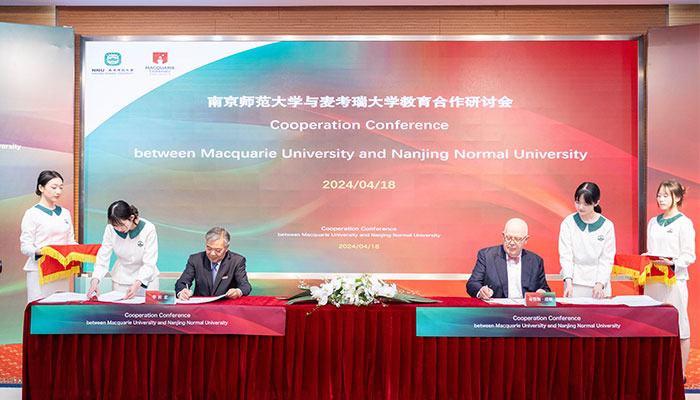Documentary film research project investigates Indigenous soldiers' war service
Dr Tom Murray's latest documentary research project brings together visual anthropology-based research techniques to investigate Australian frontier histories and Indigenous soldiers' WW1 service. Based in the Department of Media, Music, Communication and Cultural Studies, Tom's research aims to provide a forum for non-Indigenous understanding of Indigenous cultural and political perspectives.
His current research project, The Other War: Representations of Indigenous Soldiers in WW1, investigates audio and image records captured by German artists and social-scientists in German WW1 POW camps. The research project also tracks the history of anthropological concern with capturing Indigenous cultural and physical materials including bodily remains of Indigenous people, and relates their motivations to colonial imperatives. The remediation and repatriation of these records, and the examination of the circumstances of their capture, form the basis of an upcoming exhibition and documentary film that is being made in collaboration with relevant Indigenous communities.
To gain more insight into Dr Murray's research, we asked him a few questions.
What is your current research project about?
This project looks at the junction of war, politics and science in the nineteenth and early twentieth centuries. In particular, through the life histories of two Ngadjon Indigenous men. With reference to their stories I am documenting an Indigenous perspective on frontier conflict between Indigenous landowners and early colonists in Far North Queensland. The project also documents how these two Ngadjon men ended up in Berlin during World War 1.

The current form of the research has developed as I have become increasingly fascinated with how ideas from the social sciences have been used to validate colonial and imperial aspirations.
Why did you decide to conduct this research?
Much of my previous research has concerned Indigenous communities and the history and consequences of colonialism upon them, so this project is within my general area of research interest. The initial inspiration for the project came about after attending a conference in Taiwan in 2009 where I spoke with a Belgian colleague about Australian Indigenous soldiers who served in his country during WW1. We were both very interested in the motivation of these men to fight, particularly given the circumstances of many Indigenous people within Australian society at the time.
At what stage is the research at?
I have been developing the project for five years, and am now into the second year of a DECRA (Discovery Early Career Researcher Award) Fellowship. I publish most of my research in screen forms with large broadcast audiences, so I spend long periods researching for subjects that are suited to this particular form of publication. I am curating an exhibition concerning the project in Atherton, Far North Queensland in October of this year, and I hope to document most of the key elements of the screen project over the course of the year and deliver the completed film component by the end of 2016. I intend to publish a book on the project after that.
Are you applying any innovative methodologies in your research?
The colonial strategies of land occupation - that included unlawful killing, the use of Indigenous people in the Native Police forces, incarceration and the threat of incarceration for people seen as hostile to colonial interests (or simply those who refused to work in pioneering industries), and the forced resettlement of Indigenous landowners to remote Missions - have served to fracture Indigenous families and communities. The telling of this history and the collaborations required to establish audio-visual solutions to appropriately tell these stories, will require innovative approaches.
What relevance does your research have in today's society?
I hope my research serves to inform current understandings of frontier conflict in Australia, contextualise motivations for Australian civil and international conflict and the part played by scholarly communities in these conflicts, and address the ongoing impacts of colonialism in Indigenous communities. Ideally this research will also offer possibilities for meaningful local and national remediation and reconciliation with these histories. The upcoming exhibition in regional Queensland is the beginning of this outreach aspect to my work as part of this project.
httpv://www.youtube.com/watch?v=S_qguQun33I
More about Dr Tom Murray
Since 2006 Dr Tom Murray has been studying, teaching and researching at Macquarie University. He has a PhD in media/history and his research and teaching has focused on screen directing, production, and writing. His screen works have won numerous Australian awards including the NSW Premier's Award for History, the Dendy Award for Best Film at the Sydney Film Festival, and the Australian Directors Guild Award for Best Direction in a Documentary Feature. His work has also been selected for many international film festivals including the Sundance Film Festival, IDFA Amsterdam, and major festivals in London, Vancouver, Toronto, Palm Springs, Seoul, Taipei, Jakarta, Jerusalem and many more. In 2014 he was awarded the Max Crawford Award for Services to Humanities Scholarship, the highest award for an Early Career scholar working in Australian Humanities research.



